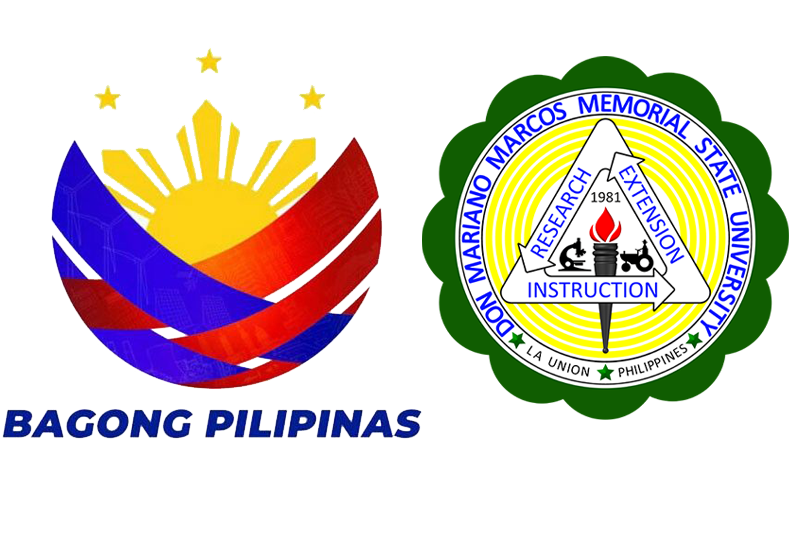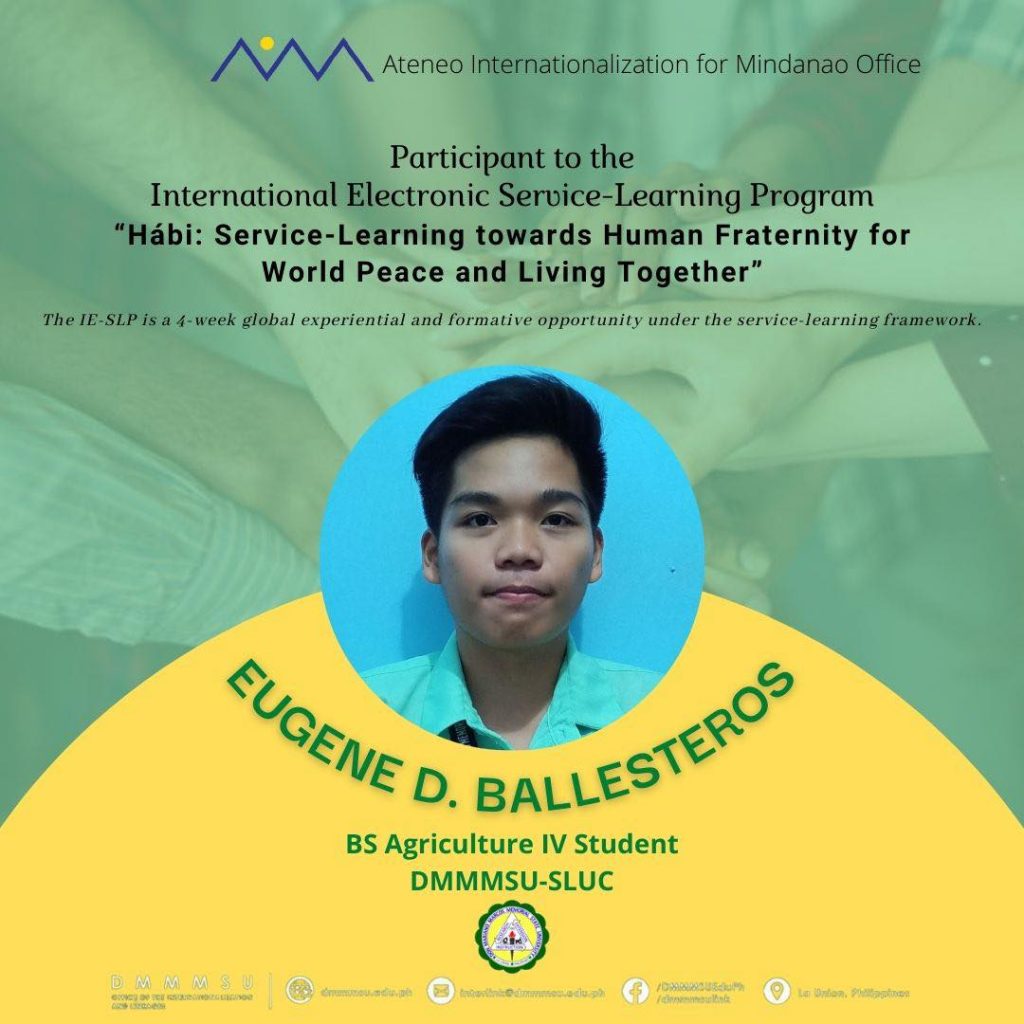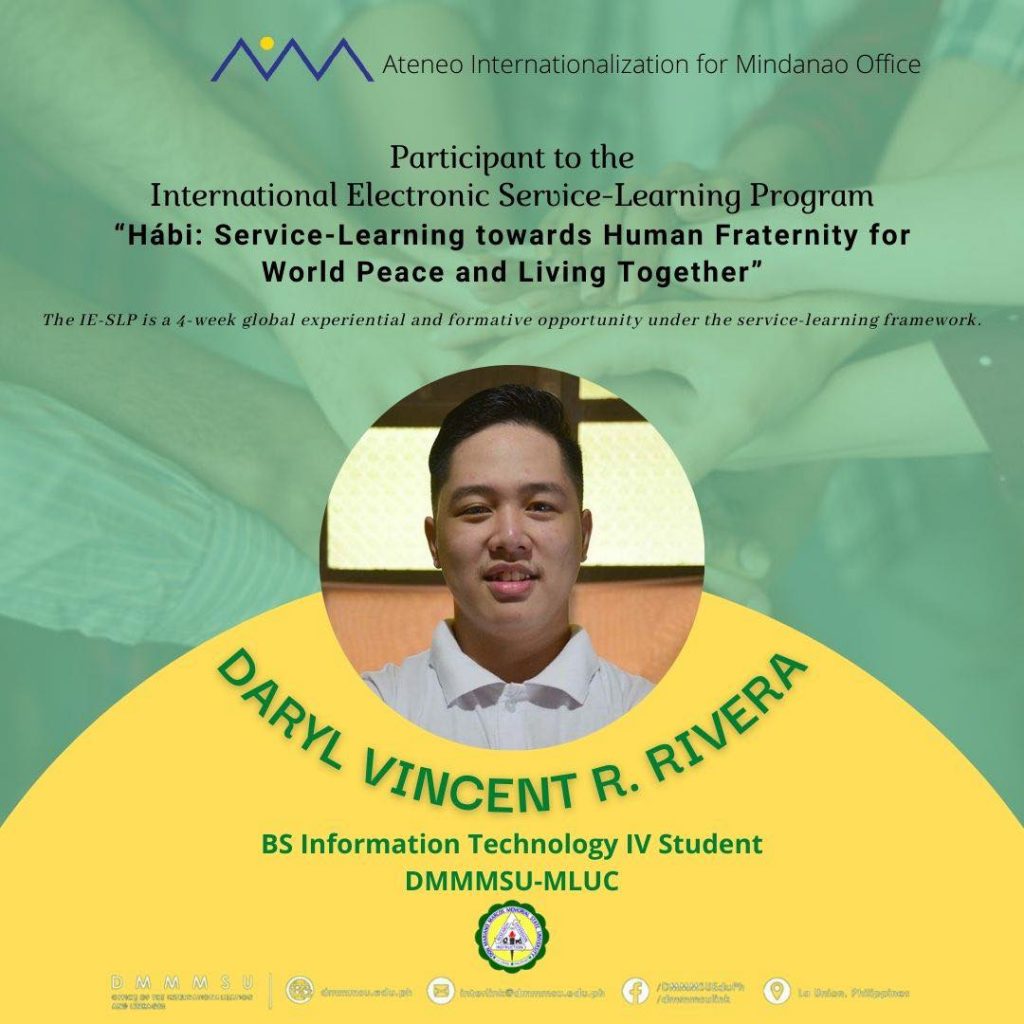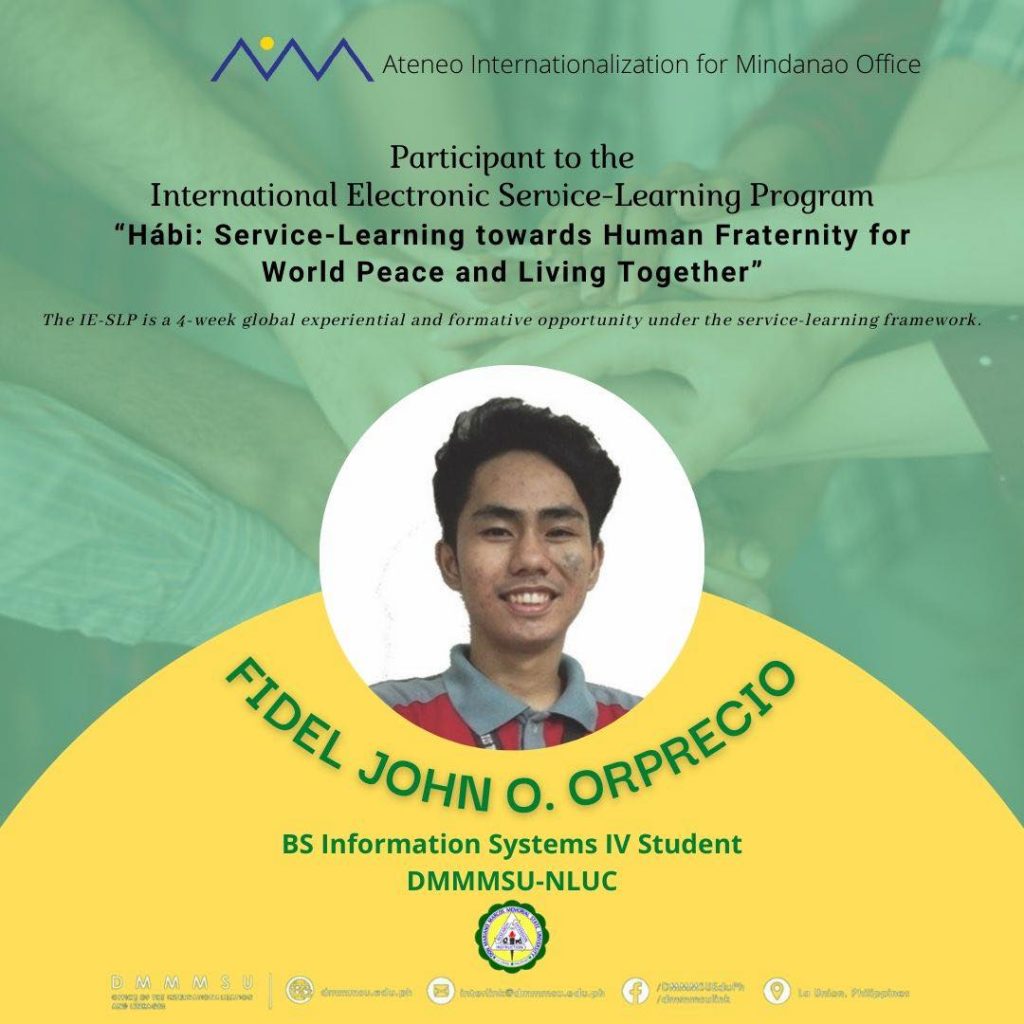Three students from the three Campuses of DMMMSU qualified as participants in the International Electronic Service-Learning Program (IE-SLP)’s November cycle titled, “Hábi: Service-Learning towards Human Fraternity for World Peace and Living Together— hosted by the Ateneo de Davao University, through the Ateneo Internationalization for Mindanao (AIM) Office.
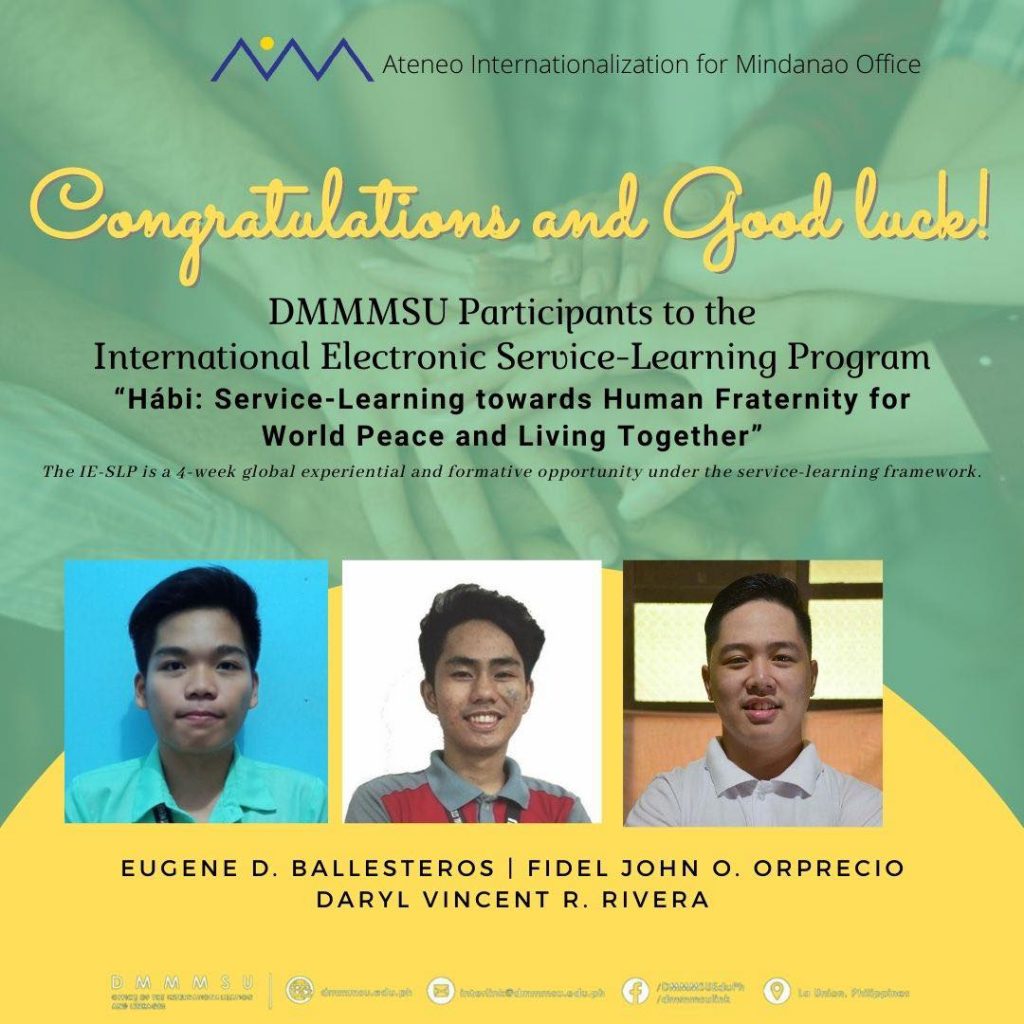
About 60 local and international participants— comprised of students, young professionals, women, and civil society organizations. Participants from DMMMSU are Eugene D. Ballesteros, (BS Agriculture IV, SLUC), Daryl Vincent R. Rivera (BS Information Technology IV, MLUC) and Fidel John O. Orprecio (BS Information System IV, NLUC).
IE-SLP is anchored in the theme “Document on Human Fraternity for World Peace and Living Together,” a joint statement signed by Pope Francis of the Catholic Church and Sheikh Ahmed el-Tayeb, Grand Imam of Al-Azhar.
This virtual program further invites participants “to remain rooted in the values of peace, to defend the values of mutual understanding, human fraternity, and harmonious coexistence.”
Through the IE-SLP, the participants venture on the journey–the historical injustices and years of struggles and the road to peace–of the peoples of Mindanao (i.e. Islamic and non-Islamic Indigenous Peoples and the migrant settlers), and the diversity and mutual coexistence of different religions. The program also provides learning opportunities for the participants to promote respect and social inclusion of the vulnerable and marginalized individuals. Finally, the IE-SLP invites the participants to be in solidarity with the indigenous peoples and be encouraged to engage in a culture of encounter rather than a culture of indifference.
The IE-SLP is conducted virtually in both its service and formation components. The online format provides participants with avenues for distance collaboration and remote service immersion. The sessions are to be conducted via Zoom video conference. E-learning materials, online resources, and tools are curated and accessible in the Google Classroom. (Jesus Rafael B. Jaravata)
